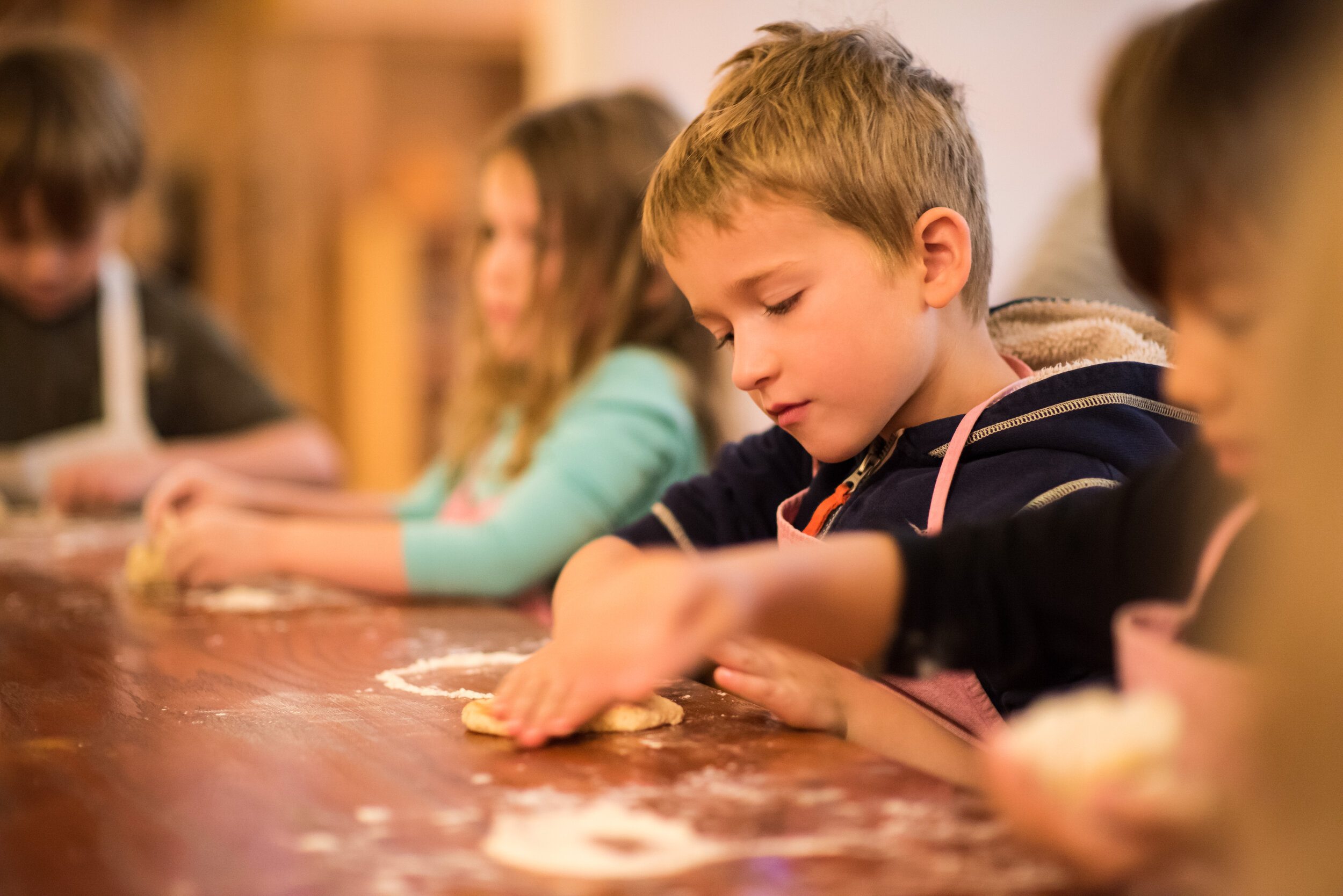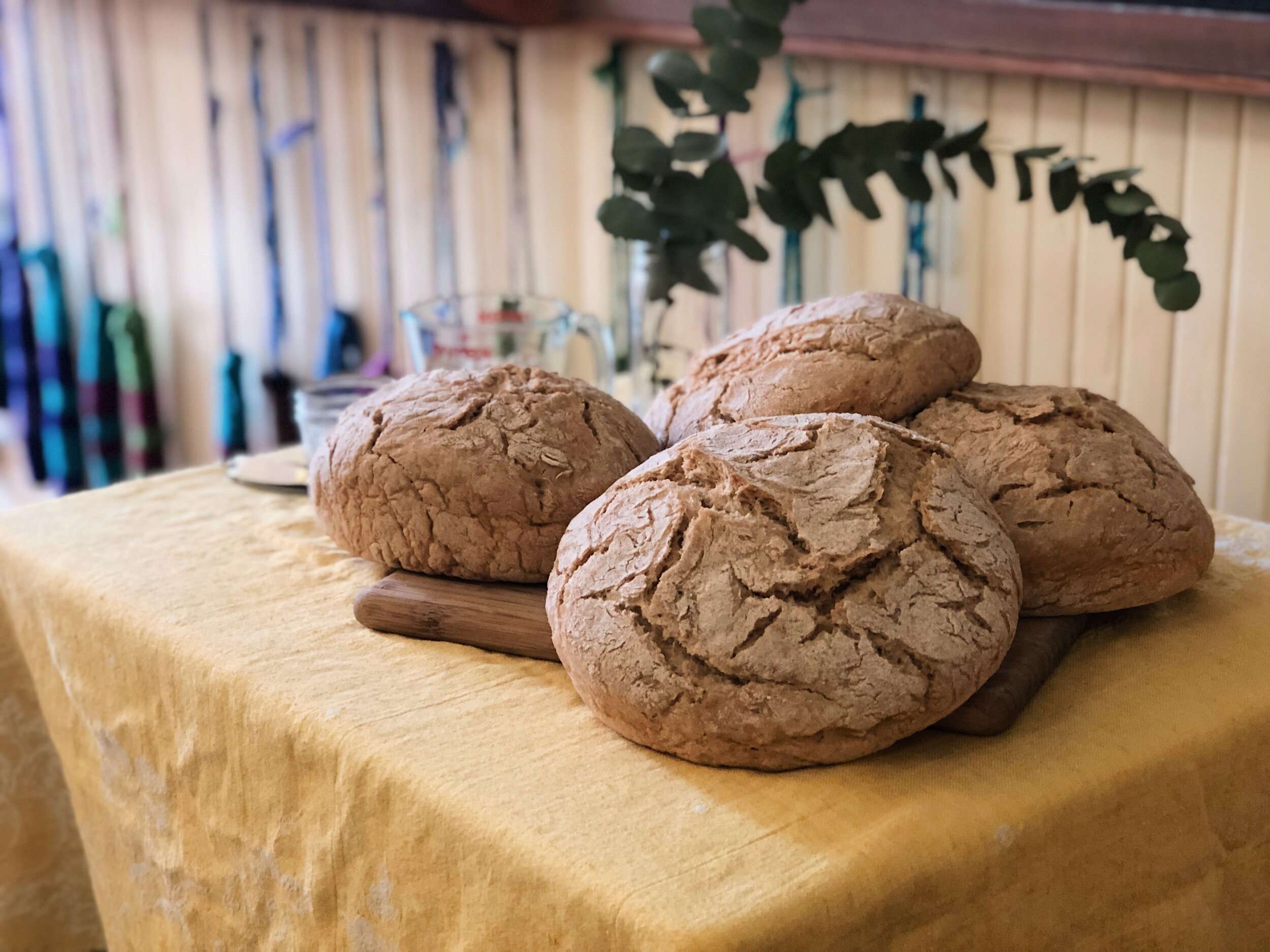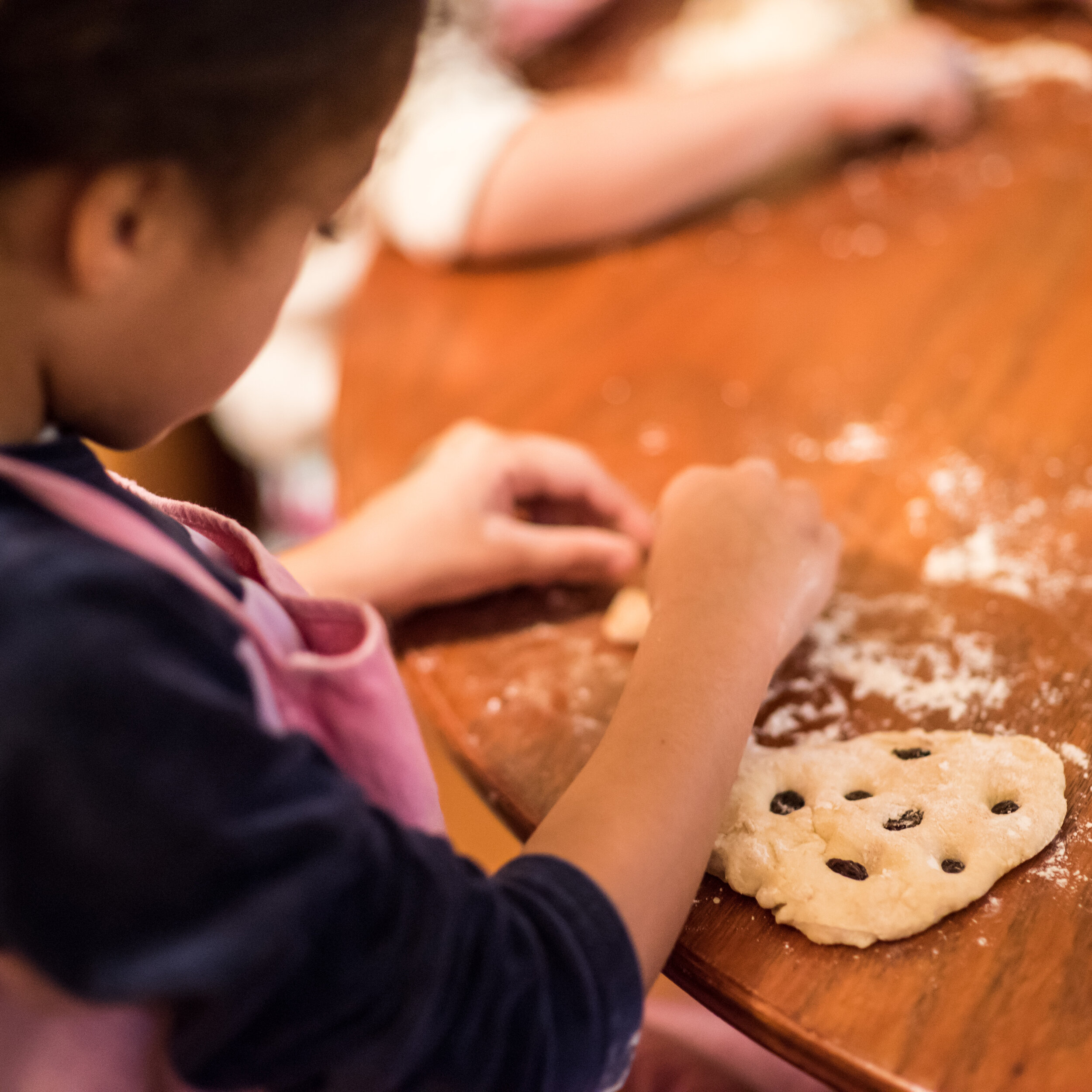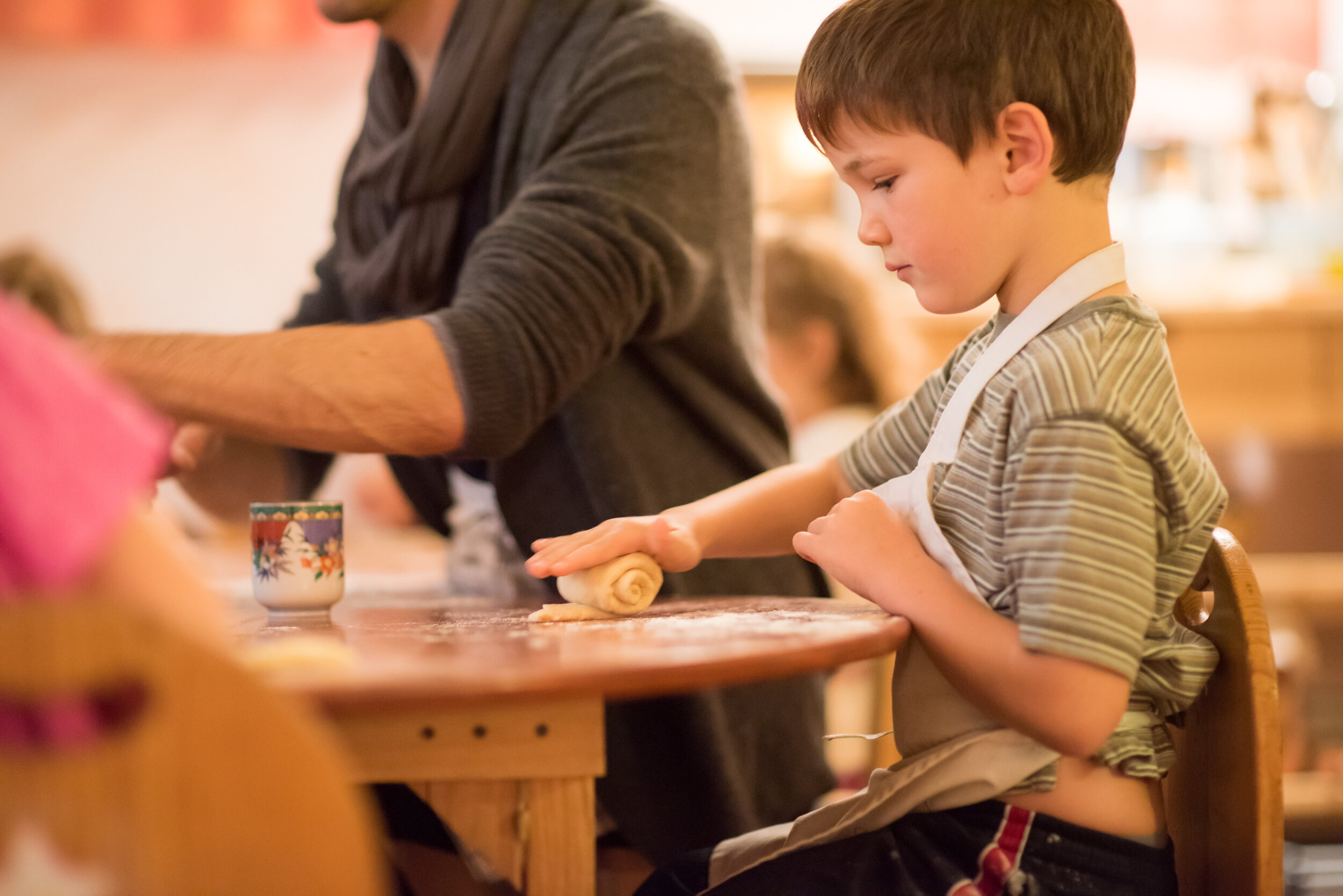Why We Prepare & Share Snack Together
Ahh, the wonderful smell of arriving to school: bread is baking, soup is simmering in the pot… whatever the day, snack time is a big part of the morning rhythm in the Waldorf early childhood classes.
On “Soup Day” there is much good work to do to prepare our snack and we will need many helpers. As the children enter the classroom, a teacher sits happily and carefully cutting long strips of carrots and celery in preparation for many small hands to take up the important task of chopping.
“Can I do that too?”
The children naturally love to help, especially side-by-side with the adults in their lives.
Using a sharp knife or a peeler requires focus and helps to develop fine motor skills. It is also a wonderful sensory experience, as we touch, taste, and are exposed to different veggies.
The class all works together to prepare a hearty meal and it feels so satisfying to be a necessary part of the group. Real work for a real purpose.
When the table is set and all is ready, the class sits down to enjoy the hot soup together. We each smell our bowls of soup and thank the vegetable choppers and peelers for their hard work. A candle is lit, we sing a song of gratitude in the way of a blessing, and then begin to eat. There is a mood of reverence as we eat quietly at first, just filling our bellies and remembering our table manners as best we can.
After a time, the teacher might share a story about the sunrise that morning or the antics of their dog last night, and the children begin to raise their pinkies to share stories of their own. The social part of snack has begun as the children need to wait their turn, give attention to their friends, and laugh!
By the end of snack, the soup pot is empty and there is a feeling of well-being: our whole being is nourished and it all began with a job well done.
If you love what you are doing and are working with joy, the young child will join in purposeful work out of a desire to do it just like you.
Breaking down any task or chore into steps that are easy for your child to imitate will make the work easier and more pleasant to do together.
Their ability to imitate is remarkable. We, as adults, just need to be prepared to welcome and appreciate their help, to perhaps move a bit more slowly, working alongside them as they learn a new skill, striving to be as worthy as possible of their imitation.
You are Your Child’s First Teacher, by Rahima Baldwin Dancy, is an excellent resource for those interested in bringing their children into meaningful work at the home through imitation.
Erin Cartwright knew she wanted to work with children from an early age and was introduced to Waldorf Education and the writings of Rudolph Steiner by her mother. She completed her teacher training at the Rudolph Steiner College, while she apprenticed under Susan Andrews at Cedarwood in its early days. Erin was thrilled to become the lead teacher of the Cherry Blossom kindergarten in 2003.






